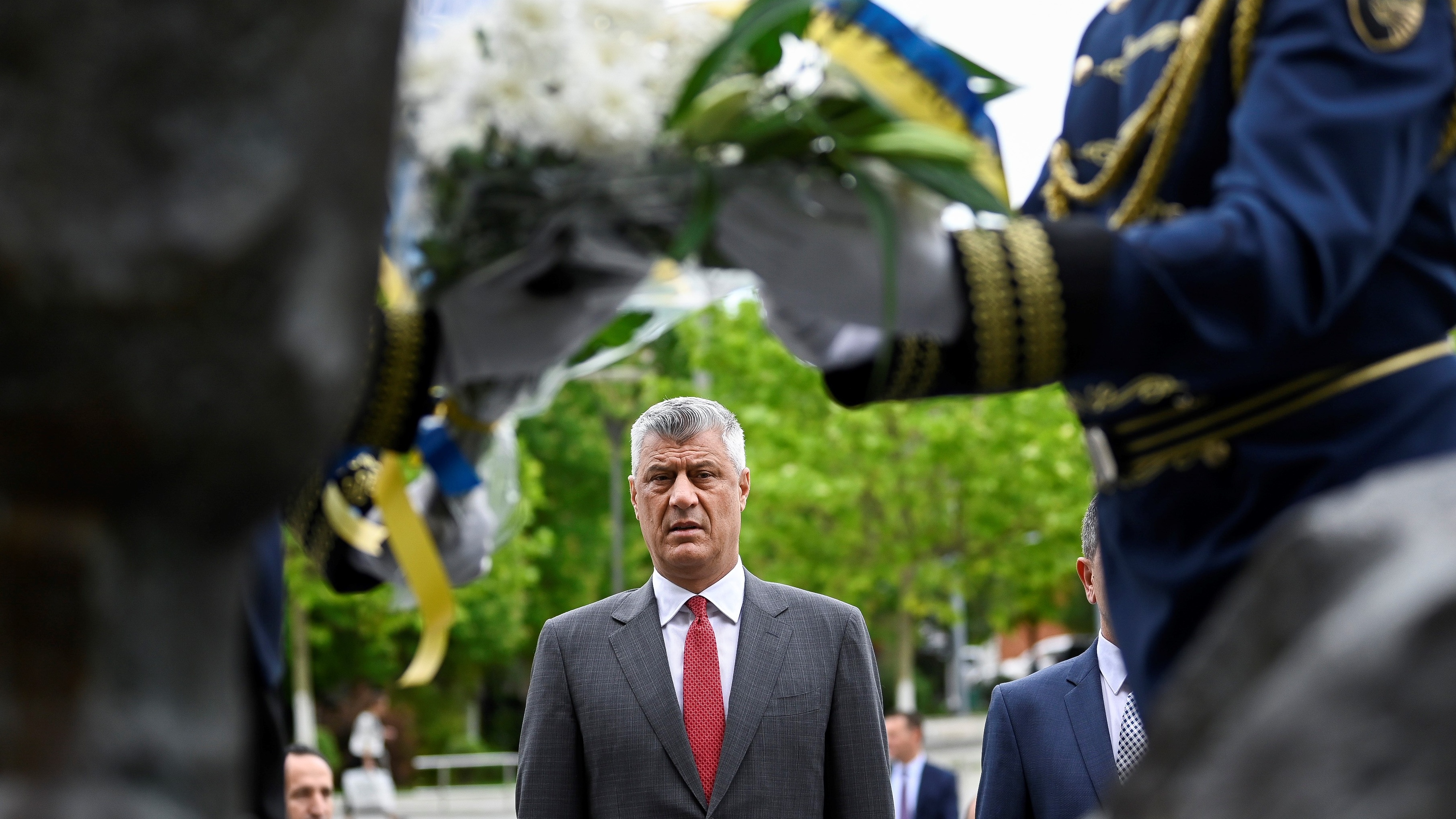Kosovo president indicted for war crimes while travelling to White House peace talks
Charges brought by Hague prosecutor capsize US bid to end tensions in the Balkans

A free daily email with the biggest news stories of the day – and the best features from TheWeek.com
You are now subscribed
Your newsletter sign-up was successful
Kosovo President Hashim Thaci has been indicted on ten counts of war crimes dating back to his country’s battle for independence from Serbia.
Thaci, who commanded the Kosovo Liberation Army (KLA), and other former fighters are “criminally responsible for nearly 100 murders”, torture and enforced disappearances, according to a statement from an international prosecutor in The Hague.
The president was “en route to the US” on Wednesday for a meeting with his Serbian counterpart, Aleksandar Vucic, at the White House when the “stunning announcement appeared on the website of the special court”, Politico reports.
The Week
Escape your echo chamber. Get the facts behind the news, plus analysis from multiple perspectives.

Sign up for The Week's Free Newsletters
From our morning news briefing to a weekly Good News Newsletter, get the best of The Week delivered directly to your inbox.
From our morning news briefing to a weekly Good News Newsletter, get the best of The Week delivered directly to your inbox.
Thaci will no longer attend the peace talks, “dashing American hopes that the negotiations might finally lead to a settlement between Serbia and Kosovo”, says The New York Times.
The leader of the Democratic Party of Kosovo, former spy chief Kadri Veseli, has also been indicted. Veseli told reporters in Kosovo capital Pristina that the “accusations are completely without basis”.
“I’m worried that the true motivations of the prosecutor are political. Having in mind the timing, a couple of days ahead of the White House meeting... people are right to suspect this is not a coincidence,” Veseli added.
–––––––––––––––––––––––––––––––For a round-up of the most important stories from around the world - and a concise, refreshing and balanced take on the week’s news agenda - try The Week magazine. Start your trial subscription today –––––––––––––––––––––––––––––––
A free daily email with the biggest news stories of the day – and the best features from TheWeek.com
What happened during the war?
In the late 1990s, Kosovo won autonomy from Serbia, aided by a Nato bombing campaign. The Balkan nation declared independence in 2008.
Serbia still does not recognise Kosovo’s sovereignty, however, and negotiations to reach a peace deal faltered in 2018.
During the war, Thaci fought in the KLA, which backed independence for his country and its ethnic majority of Albanians. According to the Belgrade-based Humanitarian Law Centre, most of the 13,000 people known to have been killed during the conflict were Kosovar Albanians.
Human Rights Watch has documented “torture, killings, rapes, forced expulsions, and other war crimes committed by Serbian and Yugoslav government forces”. But more than 2,000 of the casualties were Serbs and Roma killed by Nato bombs or by guerilla groups such as the KLA.
The special court in The Hague was set up to investigate “war crimes committed during and after the 1998-1999 Kosovo conflict”, Politico says.
In 2008, a former Hague war crimes prosecutor, Carla del Ponte, set out allegations against the KLA of organ-trafficking, the BBC reports.
Thaci has held various roles in the Kosovo government since the end of the war, becoming president in 2016 - which now “puts the West in a bind”, says Politico.
As well as complicating peace efforts and raising questions about cooperation with the Kosovo leader, the allegations also “raise uncomfortable questions about Western foreign policy then and now”, the news site adds.